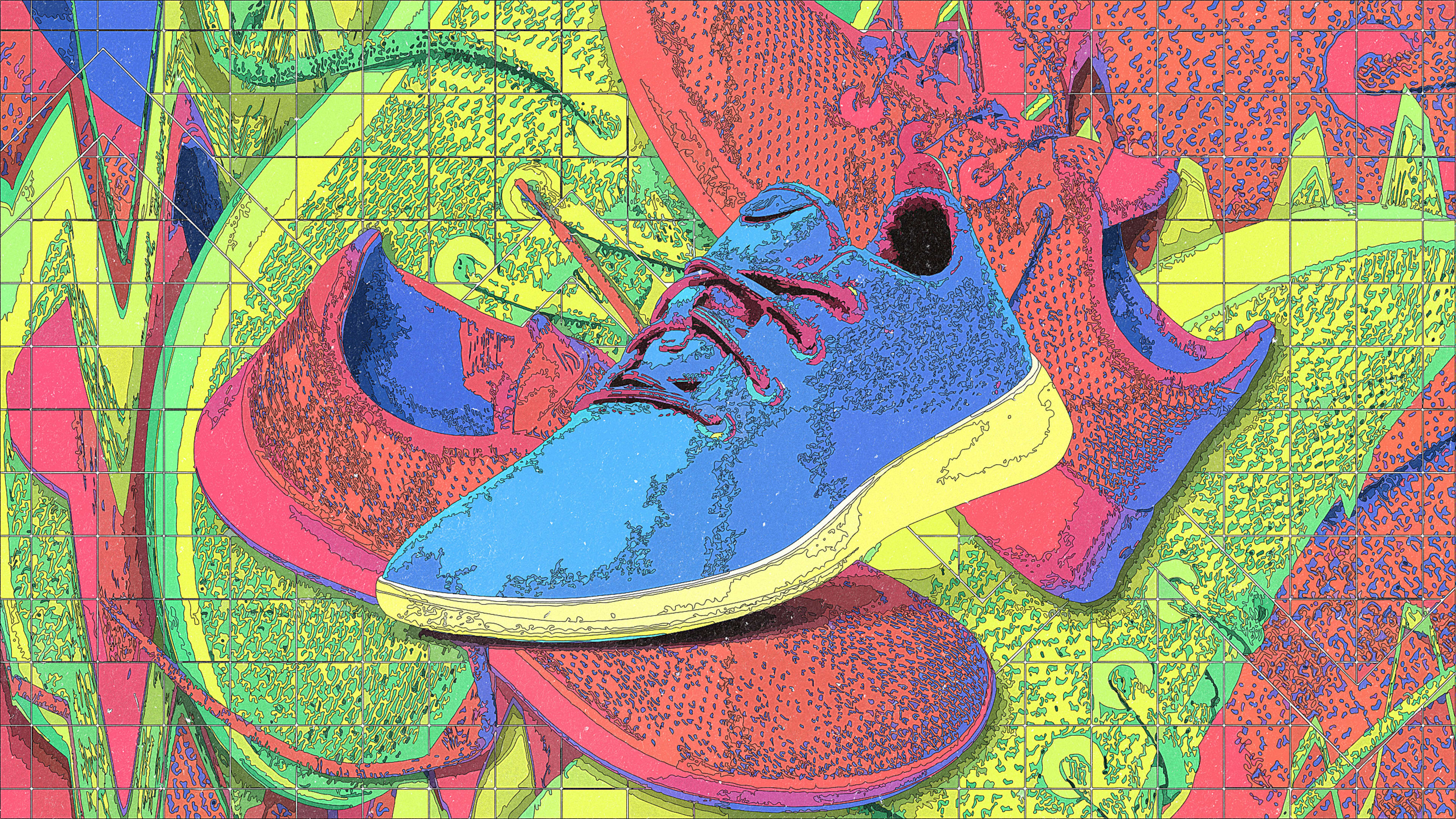Branded is a weekly column devoted to the intersection of marketing, business, design, and culture.
This week, Allbirds announced the “M0.0nShot” sneaker, a shoe whose distracting name refers to the claim that its production will involve 0.0 kg of carbon emissions. The shoe won’t be unveiled until June—or commercially available until 2024, but Allbirds has announced it now, generating a flurry of press attention. No doubt the company could use an upbeat, ray-of-hope talking point. Because lately, the news around Allbirds has been pretty bad.
And that’s quite a shift, given its remarkable history. When Allbirds went public in November 2021, the upstart sneaker-maker had a profoundly popular story. It was mission-driven, making innovative use of eco-friendly materials. Its aesthetic was stylish but tastefully minimal in a way that made it a more grown-up alternative to over-logo’ed, flashy sneakers. It relied heavily on a direct-to-consumer model, widely lauded at the time for disrupting traditional retail. And its shoes had proven particularly trendy among influential Silicon Valley types. The young company had enjoyed enormous media attention—from a New Yorker feature to Time declaring it the maker of “the world’s most comfortable shoes.” It closed its first day of trading valued at more than $4 billion.
Today, Allbirds is valued at less than $175 million. In its first full year as a public company, it lost more than $100 million. It’s coming off a particularly bruising quarter that saw overall revenue shrink 13%. New Allbirds store openings, once a key element of its growth plans, are effectively on pause as the company cuts costs, straightens out its supply chain, replaces its CFO, and retrenches. What changed?
The problem, according to Allbirds, is that the company neglected its original fans as it branched out with different models and designs meant to draw in newcomers. During its most recent earnings call, executives used the word “core”—as in “our core franchise,” “our core consumer,” “our core demo”—at least 25 times. The upshot: The company pursued too many changes in focus, and is now correcting that misstep.
“We overemphasized products that extended beyond our core DNA,” cofounder and co-CEO Joey Zwillinger said, citing “seasonal trend colors and new silhouettes,” and an “overinvestment on newness” that resulted in new models with narrower-than-hoped appeal, and “came at the expense of focus” on flagship models that drove the brand’s early success. He specifically cited the chunkier Pacer sneaker that aimed at “younger consumer,” and the Tree Flyer that was marketed around “technical running performance,” as being outside the brand’s “sweet spot.”
So in a back-to-the-future strategy, Allbirds is now doubling down on its “core consumer.” Zwillinger, citing an internal study, described this group as “fairly evenly” split by gender, concentrated on ages 30 to 40, “active,” generally affluent, and concerned with “the environment and making a positive impact.” The study also suggested strong brand loyalty, Zwillinger pointed out. “A key role I am playing in this work is getting back to my roots evangelizing our brand,” cofounder and co-CEO Tim Brown added. That means selling Allbirds as synonymous with sustainable innovation.
Thus, Brown is now evangelizing the M0.0nShot. Whether the sneaker ultimately lives up to Allbirds’ zero-carbon claims (which are partially based on regenerative agriculture) is unclear, but forcefully associating the brand with the planet-saving aspirations that helped put it on the map seems to be central to the company’s strategy for energizing its core loyalists. “From the beginning, this has been about the intersection of purpose and profit,” Brown recently told Vogue.
But there have been other significant changes since Allbirds first sang that tune. The direct-to-consumer vanguard (Warby Parker, Casper, Wayfair, etc.) no longer looks like quite the same existential threat to traditional retail; performance-oriented sneaker brand On has had notably more success with third-party partners. Allbirds, in fact, has been experimenting with distribution through mainstream accounts including REI, Dick’s Sporting Goods, and Nordstrom. Moreover, any sheen from being associated with Silicon Valley types definitely seems dimmer. It’s questionable whether tech bros ever had any influence over popular style; but in a post-SVB culture, they definitely don’t. In fact, the actual tech-worker appetite for new kicks is probably muted in an environment marked by constant news of layoffs. And, of course, the comfort-centric focus that helped the brand’s initial attention faded as pandemic culture receded.
In one of the most surprising asides in that earnings call, Zwillinger noted that “Allbirds still has less than 15% aided brand awareness in the U.S.” (Broadly speaking, this means 15% of those surveyed answered yes to a question along the lines of, “Are you aware of Allbirds sneakers?”) Zwillinger said this offered “an incredible opportunity.”
But it also sounds like an incredible challenge. Obviously, Allbirds’ “core” already knows the brand. The real moonshot mission might be figuring out how to extend brand awareness to new customers by reiterating the same basic message. And it seems pretty clear that Allbirds needs more new customers in a much-changed world, and it’s not clear that going back to what worked in an earlier era will do that. Maybe the M0.0nShot is distinct enough to do the trick. Or maybe the problem isn’t that Allbirds’ brand changed too much, but that it hasn’t changed enough.
Recognize your brand’s excellence by applying to this year’s Brands That Matter Awards before the early-rate deadline, May 3.
